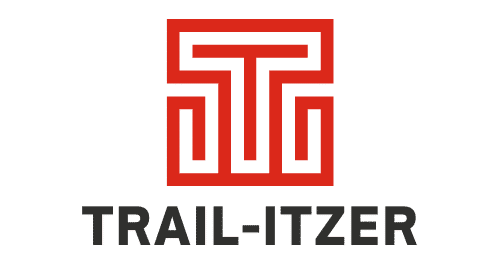What are the ethical dilemmas in using ai for sports coaching?

The realm of sports coaching is evolving rapidly, with the integration of advanced technologies like artificial intelligence (AI) and machine learning algorithms. These cutting-edge tools offer a significant edge in analyzing and enhancing athlete performance, shaping training programs, and even in injury prevention. While AI’s deployment in sports is often viewed through a lens of innovation and progress, it invariably raises critical ethical dilemmas. As sports trainers, athletes, and enthusiasts, it’s crucial to navigate these concerns as we harness data and AI in pursuit of sporting excellence.
In this detailed exploration, we’ll delve into the contentious ethical questions that surface when AI intersects with the sports industry. The use of learning algorithms, real-time analytics, and computer vision technologies has the potential to transform how you approach sports training and decision-making. However, alongside the promise of optimized performance lies a myriad of ethical considerations spanning data protection, human autonomy, and the potential for misuse. Understanding these issues is indispensable for ensuring that the sports world embraces AI without compromising ethical standards or the human spirit at the heart of athletic competition.
Dans le meme genre : Beyond the game: how sports influence global culture
Ai in sports: a revolution in performance analysis
AI and machine learning are reconfiguring the landscape of sports training and performance analysis. These technologies enable coaches and athletes to dissect and understand sports data with unprecedented precision. From tailoring training regimes to specific needs to delivering real-time feedback during matches, the application of AI has the potential to unlock new levels of performance.
However, with great power comes great responsibility. The use of AI in sports must be managed with a keen sense of ethical responsibility. One must consider the privacy of athletes as vast amounts of personal data are collected and analyzed. This is not just physical data but often includes biometric data that can reveal much more about an individual’s health and capabilities. Ensuring that this sensitive information remains secure and is used solely for the intended purpose of enhancing performance, without exploitation, is a significant ethical challenge.
A lire aussi : What strategies do coaches use to build team morale and unity?
The impact of data collection and usage
In the field of sports, the collection of data extends beyond simple performance metrics. It encompasses physiological, psychological, and even genetic information. The depth of data collected raises questions about the consent of athletes. Are athletes fully aware of what data is being collected, how it will be used, and who will have access to it?
Furthermore, there’s a risk that data could be used for purposes that extend beyond improving performance, such as for betting or by third parties with commercial interests. This risk makes data protection a crucial ethical issue in sports AI. Coaches and institutions must establish clear protocols to secure data and transparently communicate these measures to all involved parties.
Preserving human coaching elements
Despite AI’s potential to enhance coaching, it’s essential to preserve the uniquely human elements of sports training. Empathy, intuition, and motivational skills are intrinsic to successful coaching. These aspects foster a strong coach-athlete relationship, which is paramount for mental and emotional well-being. AI must complement, not replace, these human elements. This balancing act is a delicate ethical consideration when integrating AI into sports coaching.
The role of ai in decision making
Artificial intelligence has the potential to assist in making strategic decisions during training and competitions. Through real-time data analysis, AI can offer insights that might not be immediately apparent to the human eye. This can lead to more informed decisions that could be the difference between winning and losing.
Enhanced real-time strategies
AI’s ability to process and analyze large volumes of data in real-time is a game-changer for sports strategy. Coaches can make decisions based on precise, data-based insights, giving their teams an edge. But this advantage also presents an ethical question: does it create an unfair playing field? Teams with access to sophisticated AI tools may have an advantage over those who cannot afford such technologies, raising concerns about equity in sports.
Augmenting human decision making
The incorporation of AI into sports decision-making processes should be done to augment, rather than replace, human judgment. The intuitive understanding that coaches have of their athletes and the dynamic nature of sports cannot be fully replicated by algorithms. AI should provide recommendations that coaches can consider alongside their expertise and knowledge of the athletes’ physical and mental states.
Ethical implications of ai for athlete development
While AI can provide tailored training programs to enhance physical performance, it also introduces new challenges in athlete development. Athlete performance can significantly improve with customized training regimens and injury prevention strategies derived from AI analyses. However, the implications of such profound personalization need careful ethical examination.
Tailoring training to the individual
Personalized training programs based on AI analyses can lead to significant improvements in performance, but they must respect the athlete’s autonomy and long-term health. Over-reliance on data-driven strategies may push athletes beyond safe limits or encourage a one-size-fits-all approach that neglects the individual’s unique physical and psychological makeup. Coaches must ensure that AI serves the athlete’s best interests and personal goals, not just performance outcomes.
Injury prevention and long-term health
One of the most promising applications of AI in sports is in injury prevention. By analyzing data on athletes’ movements and physical condition, AI can help identify potential injury risks and suggest preventative measures. However, there’s a thin line between preventative care and intrusion into an athlete’s right to make informed decisions about their body and health. Ensuring that athletes maintain control over their health choices is a critical ethical concern.
Ethical considerations in elite sports training
The stakes are incredibly high in elite sports, where the pressure to perform can lead to the adoption of AI in ways that raise ethical questions. Elite sports training has always sought the cutting edge, and AI represents the latest frontier. But this quest must respect the integrity of the sport and the well-being of the athletes.
Maintaining fair play and integrity
The use of AI in elite sports must align with the principles of fair play and the integrity of competition. If AI is used to push athletes beyond their natural limits or to exploit loopholes in the rules, it undermines the spirit of sportsmanship. Ensuring that AI is used to enhance, rather than distort, competition is a fundamental ethical principle.
Balancing innovation with tradition
In elite sports, tradition plays a significant role in shaping the culture and values of competition. As AI technologies are introduced, it’s important to strike a balance between embracing innovation and respecting the traditional aspects of sports. This balance requires thoughtful consideration of how AI is implemented and its impact on the nature of sports competition.
Navigating ethical dilemmas in sports ai
The integration of artificial intelligence into sports coaching presents a complex web of ethical dilemmas that cannot be ignored. Coaches, athletes, and governing bodies must work together to navigate these issues, ensuring that the benefits of AI are realized without compromising ethical standards or the humanity of sports.
Developing ethical guidelines for ai use
The sports industry must develop and adhere to clear ethical guidelines for the use of AI in coaching and training. These guidelines should address issues like data protection, equity, and the preservation of human coaching elements. By establishing ethical standards, the sports industry can foster responsible use of AI technologies.
Educating athletes and coaches
Education is key to managing the ethical implications of AI in sports. Athletes and coaches need to understand both the capabilities and the limitations of AI. They should be informed about the ethical considerations of data collection and usage, and how to balance technological insights with human judgment.
In conclusion, the ethical dilemmas surrounding the use of AI in sports coaching are as diverse as they are critical. The sports industry stands at a crossroads where the allure of performance enhancement must be weighed against the preservation of fairness, privacy, and the human essence of competition. As you embrace these technologies, it’s imperative to maintain a vigilant eye on the ethical implications. By establishing robust ethical frameworks and prioritizing education, the sports community can ensure that as AI propels athletes to new heights, it does so without leaving the cherished values of sportsmanship and integrity behind.
